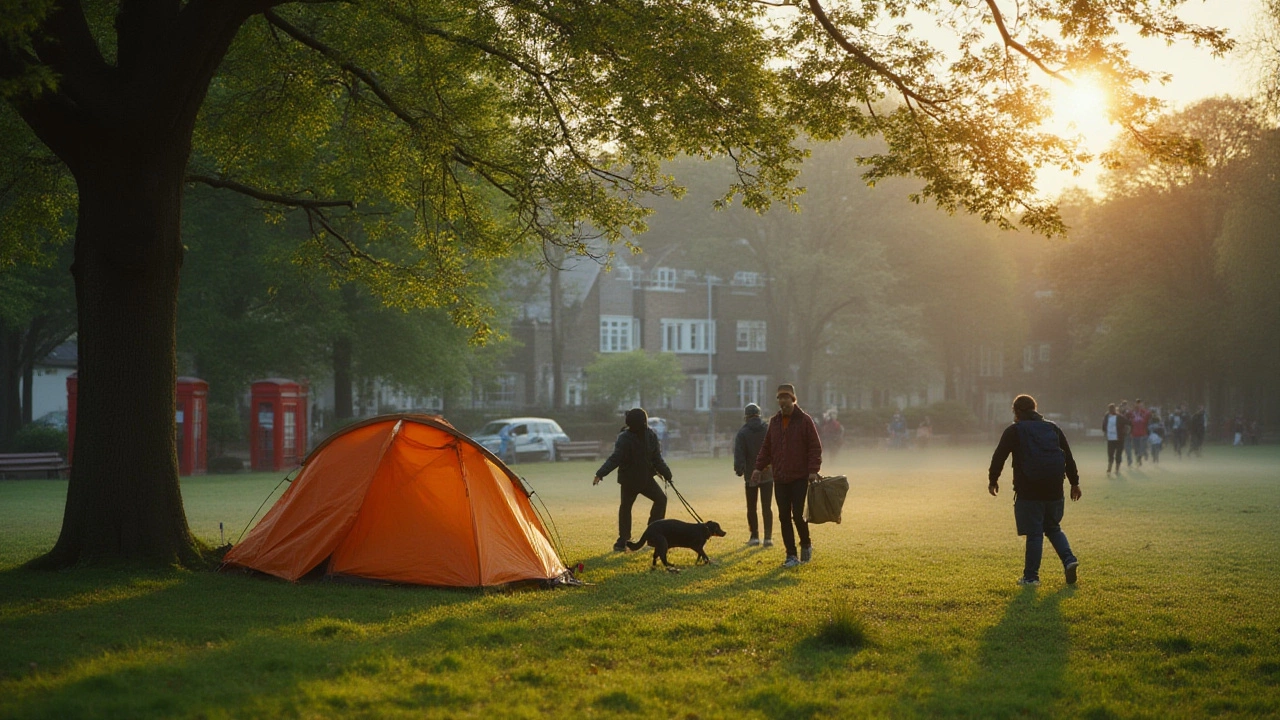Tent Rules in Public Parks – What You Need to Know
If you love setting up a tent on a green meadow, you’ve probably wondered where the line between freedom and breaking the law lies. Public parks are great places to rest, but they come with rules that protect the land, other visitors, and the environment. Ignoring those rules can mean a warning, a fine, or being asked to leave – none of which make for a pleasant holiday.
Below you’ll find the most common rules that apply to most UK parks, plus a few shortcuts to keep your stay smooth. The advice works whether you’re a weekend camper from Teesside or a traveler passing through a new county.
Common Rules Across UK Parks
First, most parks allow tents only in designated areas. Look for signs that say “Camping Allowed” or a clearly marked campsite. If there’s no sign, assume camping isn’t permitted. Some parks let you stay for a single night; others may allow a longer stay if you book in advance.
Second, you usually need a permit or a booking. Many councils run online systems where you can reserve a spot and pay a small fee. Getting a permit saves you from being asked to pack up at sunset.
Third, keep the noise down. Evening gatherings are fine, but shouting or loud music after 10 pm often breaches local bylaws. Respecting other families who are picnicking or walking nearby goes a long way.
Fourth, fire rules are strict. Open fires are rarely allowed, especially during dry periods. Use a portable stove that meets safety standards and never leave it unattended. Some parks provide communal fire pits – use those if they’re available.
Fifth, waste management is non‑negotiable. Pack out everything you bring in, unless there are clearly marked bins. Littering can result in hefty fines and damages the park’s natural beauty.
How to Stay Legal and Enjoy Your Stay
Before you head out, check the council website for the park you plan to visit. Look for a “Camping” or “Permits” section – it often lists the exact locations where tents are allowed, any fees, and the maximum stay length. If the information isn’t online, give the park office a quick call; they’ll tell you what you need.
Bring a simple checklist: permit confirmation, a low‑profile tent, a portable stove, a sleeping bag, and a trash bag. A compact lantern, a reusable water bottle, and a map of the area are also handy. The lighter your gear, the easier it is to follow the rules and move if you’re asked to relocate.When you set up, place your tent away from pathways, gardens, and wildlife nesting spots. This reduces the chance of complaints and protects sensitive areas. Keep your site tidy, and follow any instructions from park rangers – they’re there to help and can point you to the best spot.
If you’re caught without a permit or in a non‑designated area, stay calm. Explain that you didn’t see a sign and ask where you can legally camp. Most rangers will appreciate the respectful attitude and may let you stay or guide you to an approved site.
Finally, consider alternative options if a park’s rules feel too restrictive. Nearby campgrounds often provide full facilities, including power, showers, and a safe place for your vehicle. They’re a small extra cost for a lot more comfort and peace of mind.
Following these basics lets you enjoy the freedom of sleeping under the stars without the stress of fines or evictions. Happy camping, and remember – the park stays beautiful when we all do our part.
Can You Pitch a Tent in a Public Park UK: Rules, Tips & What Campers Need to Know
Find out if you can camp in a public park in the UK, the rules you need to follow, and handy tips you won't want to miss. Stay legal and hassle-free.
